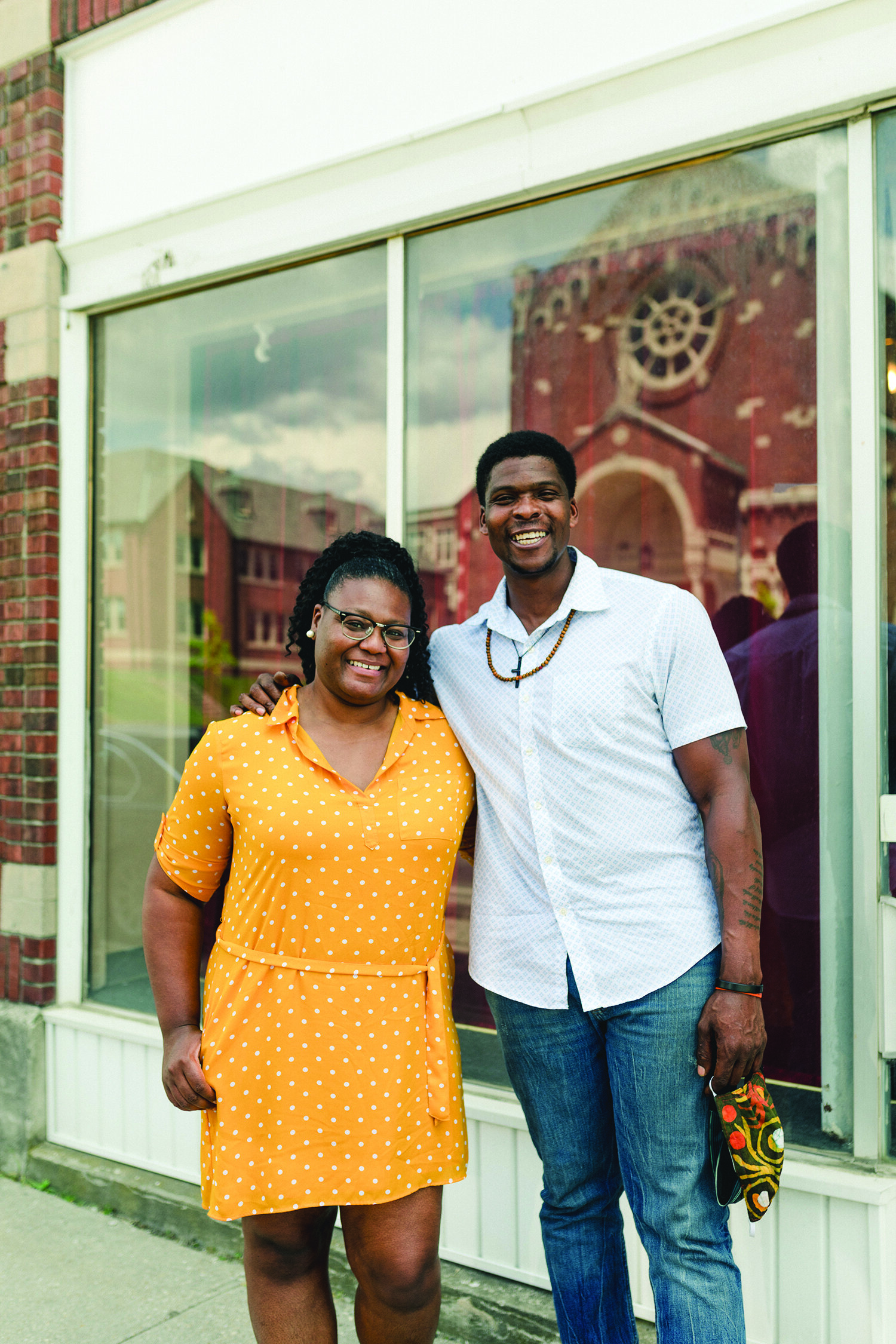Ten Minutes With Akilah Edgerton & Jerome Edgerton Jr
SIBLINGS, COMMUNITY LEADERS, VISIONARIES
Akilah Edgerton and Jerome Edgerton Jr. follow in their parents’ footsteps as vital community leaders in the Berkshires. Akilah is dean of diversity and inclusion at Berkshire School in Sheffield and senior pastor at the New Generation Global Ministry in Pittsfield. Jerome created the countywide SESSIONS Athletic, Life Skills and Training for boys and young men, with a focus on mind, body, and spirit. Eradicating racism starts right here, and these two are working to move the dial closer to making our community a level playing field.
Do you find that some white people are afraid to talk to people of color about race? Akilah: Yes, and there are so many different reasons why. They might not know what to ask or how to ask. They really have a fear of it landing wrong, or making a mistake. Sometimes white fragility may set in, where there might be guilt or there might be shame. First of all, acknowledge that the barriers are there. You can’t work through anything that you will not acknowledge. These conversations are messy, and we will not always get it right. And sometimes we will make mistakes, and that’s okay. As uncomfortable as the conversations may be, White people need to actively engage.
What have been some barriers you’ve experienced?
Jerome: When we were growing up, there were incidents that happened with us, before we were starting to do our community work, where the cops literally ran us down with Ford Expeditions. Not the small trucks but the big trucks, right outside of our drum practice. We would just be playing around on the streets, having fun, laughing, and then here they come. It was crazy. That’s why I always talk to my four-year-old kid, so he understands how to be a young black boy not just in this community, but in this world, letting him know that you are smart, letting him know that you can do anything you want to do. You’re strong, you’re educated. You go get it. I put that into his mind every single day.
How about you, Akilah?
Moving into Berkshire County from New Rochelle, New York, I was pretty young, I was ten. That was really hard. I was the black woman or the black girl that people did not expect me to be. Because I was always at the top of my class, I was always on honor roll. I would experience microaggressions. For example, “You’re so articulate.” Well, what were you expecting?
And as you got older?
Akilah: I was being recruited for a high school in this area because of sports. They couldn’t see my intelligence. But they noticed I was fast and could only see a basketball in my hand and running track. My middle school guidance counselor and my parents knew I had more to offer and held conversations about life after middle school. That’s how I found out about Miss Hall’s School. Miss Hall’s was more concerned about developing me as a woman in this world to make an impact and to make a difference.
How did you learn about racism?
Akilah: Our parents [Bishop Jerome Edgerton Sr. and Shirley Edgerton] taught us about racism and what it means to be black and how to conduct myself in a public setting. Our parents sat us down, with what Jerome is doing with his son: When you’re in public, you don’t touch anything. You stay close to me. When you start driving and the cops pull you over, you make sure you keep your hands where they can see them.
What does the fight look like now? Jerome: One thing I’ve been preaching since I started working with kids back when I get out of rehab in 2008 is you gotta understand where’s your path, where you’re going, and where you stand. Now that you have the world’s attention, what are you going to do with it? What’s the purpose behind it? What is the action that’s going to take place? Whatever it is that you want to do in this war, just take the first step and make the first phone call, join the first coalition, show up to the first meeting. Go to all the city council meetings. Let your voice be heard. Vote.
Akilah: Some who are in office now have a social justice framework. Without people who are dedicated to social justice, the laws, policies and practices will still be biased. People should have this lens in all sectors. You have to change the system. Racism is a system.
How important is faith in what you do? Akilah: I could not do this work without my faith in God, because it’s trying times. Prayer is huge for me.
How is this time in history different?
Akilah: We’re in the middle of a global pandemic where people of color are still being impacted in various ways, so many inequities in our system. If you didn’t see it before, you see it now. It’s been so apparent how people of color in this country have been treated. When the death of George Floyd happened, it was captured for the entire world to see. It was always bubbling under the surface. That was the straw that broke the camel’s back.
Do you think the protests and violence could backfire? Akilah: This country was stolen and colonized by violence. For people to focus on what’s happening now and say, oh, look at those thugs. No, I want you to go back to the history books, and let’s talk about how violent this country has been.
What more can be done locally? Jerome: Start to take care of people’s needs in terms of their health, in terms of food, education, access. We talk about careers and then we talk about financial independence, stability, so that you don’t have to depend on others. I always tell kids, sometimes you can go below a problem, sometimes you can go around it. But then sometimes there’s only one thing to do, and that’s going right through it. This is where we’re at right now. We have to go right through the system to get what we need.
—Anastasia Stanmeyer

